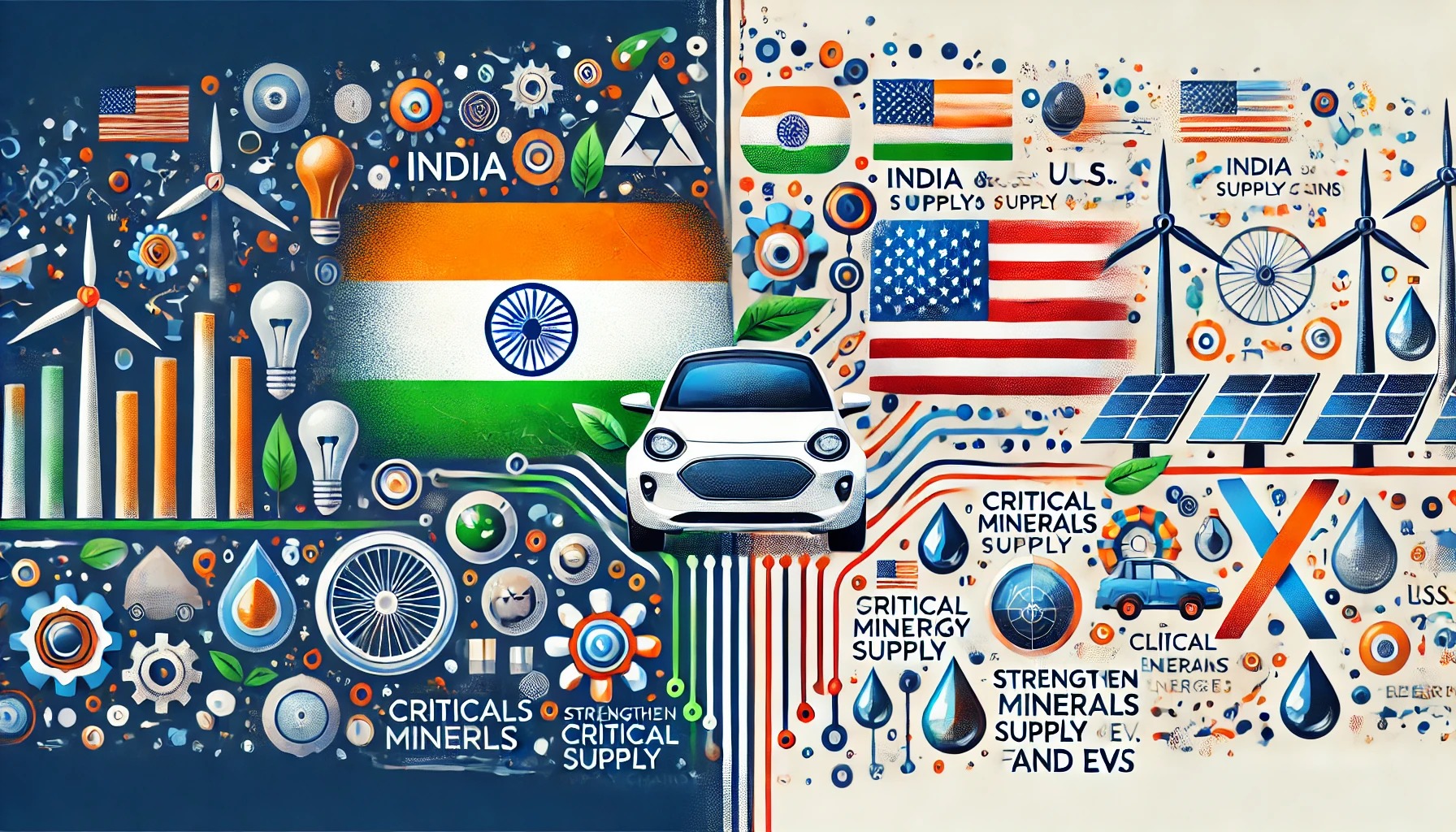India and U.S. Sign Critical Minerals Supply Chain Agreement for Electric Vehicles
Indian Trade Minister Piyush Goyal and U.S. Commerce Secretary Gina Raimondo have signed an agreement to enhance supply chain cooperation between India and the U.S. for critical minerals such as lithium and cobalt, vital for electric vehicles (EVs) and clean energy applications.
The critical minerals supply chain memorandum of understanding (MOU), signed during Minister Goyal's visit to Washington, is intended to bolster resilience for both countries in the EV sector and clean energy industries.
Focus on Supply Chain Resilience
The U.S. Commerce Department's statement highlighted that the MOU aims to establish strong supply chains for critical minerals. Priority areas include identifying necessary equipment, services, policies, and best practices to support the commercial development of critical minerals exploration, extraction, processing, refining, recycling, and recovery for both the U.S. and India.
Speaking at the Center for Strategic and International Studies in Washington, Goyal described the MOU as a "multi-dimensional partnership." The agreement will involve open supply chains for materials, technological advancements, and investment flows to support the development of green energy.
Inclusion of Third Countries
Minister Goyal emphasized that the cooperation between India and the U.S. on critical minerals will also include engagement with third countries, particularly those rich in minerals in Africa and South America, to further secure the supply chain for EV production.
Scope of the Agreement Compared to Japan-U.S. Trade Deal
Although the MOU marks a significant step in U.S.-India relations, it does not constitute a full critical minerals trade agreement. Such a trade deal would have allowed India to access the U.S. electric vehicle tax credit of $7,500.
In comparison, Japan signed a comprehensive deal with the U.S. Trade Representative’s office last year. This deal enables Japanese automakers to fully benefit from the EV tax credit, aiming to decrease mineral dependence on China and reduce export control restrictions on critical minerals like lithium, nickel, cobalt, graphite, and manganese.



 U.S. Stock Futures Fall as Nvidia Drops Despite Strong Earnings; Netflix Jumps 9%
U.S. Stock Futures Fall as Nvidia Drops Despite Strong Earnings; Netflix Jumps 9%  Germany and China Reaffirm Open Trade and Strategic Partnership in Landmark Beijing Visit
Germany and China Reaffirm Open Trade and Strategic Partnership in Landmark Beijing Visit  IMF Urges U.S. to Cut Fiscal Deficit to Reduce Trade and Current Account Gaps
IMF Urges U.S. to Cut Fiscal Deficit to Reduce Trade and Current Account Gaps  Venezuela Oil Exports to Reach $2 Billion Under U.S.-Led Supply Agreement
Venezuela Oil Exports to Reach $2 Billion Under U.S.-Led Supply Agreement  MOEX Russia Index Hits 3-Month High as Energy Stocks Lead Gains
MOEX Russia Index Hits 3-Month High as Energy Stocks Lead Gains  Trump Warns Iran as Gulf Conflict Disrupts Oil Markets and Global Trade
Trump Warns Iran as Gulf Conflict Disrupts Oil Markets and Global Trade  BOJ Signals Possible April Rate Hike as Ueda Eyes Inflation and Wage Growth Data
BOJ Signals Possible April Rate Hike as Ueda Eyes Inflation and Wage Growth Data  USITC to Review Impact of Revoking China’s PNTR Status, Potentially Raising Tariffs on Chinese Imports
USITC to Review Impact of Revoking China’s PNTR Status, Potentially Raising Tariffs on Chinese Imports  Ecuador Raises Tariffs on Colombian Imports to 50% Amid Border Security Dispute
Ecuador Raises Tariffs on Colombian Imports to 50% Amid Border Security Dispute  U.S. Stocks Rally as Nvidia Earnings Loom, Oil Prices Near Seven-Month Highs
U.S. Stocks Rally as Nvidia Earnings Loom, Oil Prices Near Seven-Month Highs  Strait of Hormuz LNG Crisis Triggers Global Energy Market Shock
Strait of Hormuz LNG Crisis Triggers Global Energy Market Shock  Dominican Republic Unveils Massive Rare Earth Deposits to Boost High-Tech and Energy Sectors
Dominican Republic Unveils Massive Rare Earth Deposits to Boost High-Tech and Energy Sectors  U.S.-Canada Trade Talks Resume as Trump Administration Reviews USMCA
U.S.-Canada Trade Talks Resume as Trump Administration Reviews USMCA  Bank of Korea Holds Interest Rate at 2.50% as Growth Outlook Improves Amid AI Chip Boom
Bank of Korea Holds Interest Rate at 2.50% as Growth Outlook Improves Amid AI Chip Boom  Trump Touts Stock Market Gains and 401(k) Boost Amid Tariff Uncertainty
Trump Touts Stock Market Gains and 401(k) Boost Amid Tariff Uncertainty  Gold Prices Rally in February as Geopolitical Risks and Economic Uncertainty Boost Safe-Haven Demand
Gold Prices Rally in February as Geopolitical Risks and Economic Uncertainty Boost Safe-Haven Demand 































